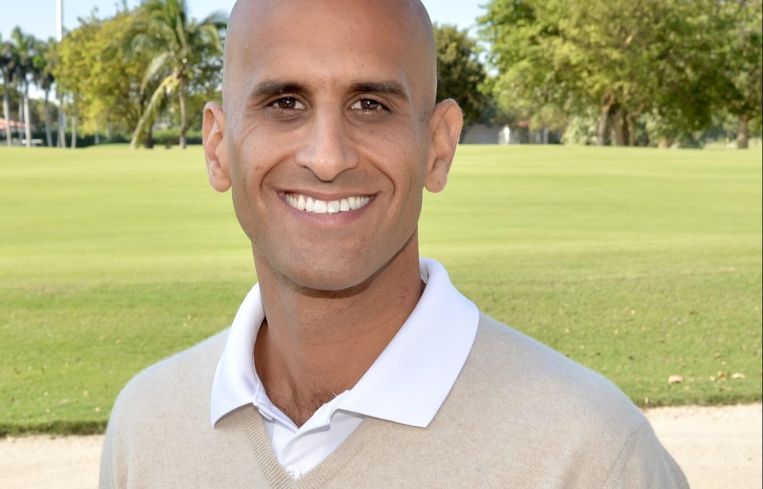Q&A: Limestone’s Ibrahim Al-Rashid on South Florida’s Retail Market
By Jeff Ostrowski May 20, 2021 4:57 pm
reprints
Spurred by what he sees as a continuing population boom, Ibrahim Al-Rashid has been on a buying spree in Florida.
“I’m not taking my foot off the gas any time soon,” said Al-Rashid, chairman of Miami-based Limestone Asset Management.
In March, Limestone paid $32 million for a 94,000-square-foot retail and office property in Pinecrest. And Al-Rashid is looking beyond South Florida. In September, Limestone paid $15.5 million for a retail property in Sarasota. Earlier this month, Limestone paid $10.4 million for two outparcels totaling 14,075 square feet at Orlando’s Mall at Millenia.
Al-Rashid is the son of Saudi billionaire Dr. Nasser Ibrahim Al-Rashid. The younger Al-Rashid in 2010 founded Limestone, a joint venture with Miami-based Orion Real Estate Group. It currently has about $200 million in assets in the U.S.
Commercial Observer spoke with Al-Rashid about the potential — and risk — he sees in the Sunshine State, and why he anticipates a retail rebound.
Commercial Observer: You’ve been active on the acquisition front lately. What do you look for when you’re shopping for properties?
Ibrahim Al-Rashid: I’ve always been active in acquisitions. In the last couple years, it’s really kicked up. It stems from a really hardened belief in the trajectory of the state of Florida. I’m a University of Miami grad, and I’ve been here for 20 years. I remember what Miami was like then, and it’s markedly different now. The city has really come into its own as an international destination. I’ve tried to branch out, because not only is South Florida growing but the rest of the state as well. Orlando is one of the most-visited cities in the world.
You’re buying retail properties. Grocery-anchored shopping centers have been doing well, but other types of retail face challenges.
That’s one of the hot topics in commercial real estate and has been for many years. It was a loud story before COVID and has only accelerated since then. Shopping centers can be a scary word, but it’s a tale of two markets. Grocery-anchored shopping centers are the ones that trade with the most cap-rate compression. Overall, when you have population growth, you have increasing consumption. And when you have increasing consumption, you need more restaurants, you need more grocery stores, you need more experiential retail, you need more clothing stores.
I am concerned, because you’ve seen a lot of mom-and-pops and regional companies really struggle through this pandemic. It’s no secret that there are vacant storefronts. But has human behavior really changed so much that Amazon is going to take over? Maybe, but I’m of the belief there will be a reversion to the mean. I think local retail will come back. I’m a believer that human beings will return to normal, and this rush toward buying online and meeting online will reverse, and we’ll get back to being human again.
As you scout for deals, what’s your biggest challenge?
Finding very good value here in Florida, because prices have just gone bananas. The biggest challenge is doing the right due diligence, taking the time to understand every property I buy, and buying right. In commercial real estate, you can get burned. Watching these runaway prices — I’m a believer, but the valuations have gotten a little frothier than they were yesterday, or two years ago or five years ago.
Frothy valuations — does that mean you’re concerned about a repeat of the bubble of 13 years ago?
No, not to that degree. Companies are much better capitalized. Lending is a lot more sober today than it was back then. Am I concerned about an event like that? No. I’m not going to say there won’t be bumps in the road. But I’m a long-term investor. I’m a 10-, 20-, 30-year guy, and I think the outlook is positive.
Do you see any risks on the horizon?
I’d like to say no, but I am a believer in climate change. In 20 years, I don’t see any meaningful change. But in 50 to 100 years, will some parts of the state be faced with a reckoning? Yes, that’s possible. Climate change is in the back of everyone’s mind here in Florida, and it’s a risk. In terms of mitigation strategies, I like what I see here in South Florida. The Miami Beach Rising Above campaign [an initiative to raise the elevation of roads and buildings] has been impressive. There are neighborhoods and streets that have risen three or four feet. We can focus on the negative, but we also need to look at the positive.



